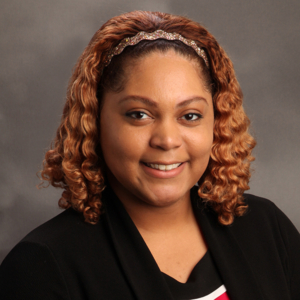The Boston Club: Supporting Professional Development for Women Executives in Boston
by Tina Vasquez (Los Angeles)
It’s an uncomfortable fact, but many professional women’s organizations began as a result of the exclusion and in some cases, blatant sexism, experienced by women in the workplace during the 1960’s and 70’s. The Boston Club, an organization of over 600 Boston-area women devoted to promoting the personal and professional development of their peers, has a similar story to tell.
Though not one of its founding member’s, Boston Club President Kathleen Stone, understands the progress women have made over the years. Growing up in a small, suburban neighborhood, this lawyer didn’t know a single woman who worked outside the home and, even during her college years, it wasn’t uncommon for female classmates to go through the trouble of getting a degree, only to do nothing with it. There finally came a time during the 70’s and 80’s when women were joining the upper ranks of companies both large and small, only to find that they were intentionally being excluded by their male co-workers. “Essentially, The Boston Club started in 1976 because a female vice president couldn’t find anyone to have lunch with. Male executives would go out together in large groups at private lunch clubs and they wouldn’t include her. She finally met four other female executives to eat with and before you know it, a weekly luncheon turned into an organization for women working professionals who wanted to advance their female peers,” Stone said.
The Boston Club is quite rare in the way that its members come from a multitude of professional backgrounds, including business executives, entrepreneurs, political leaders, physicians, artists, construction engineers, professors, restaurateurs, and lawyers- just to name a few. As Stone pointed out, there are women in every industry in existence and they comprise over 50 percent of the population, yet they continue to be underrepresented in the upper levels of corporations. “The idea behind our organization is very basic: women should promote opportunities for other women at upper levels if and when they can,” Stone said. “We have been surveying our members for eight years and though little advancements have been made, there has been nothing in the way of major progress. There are still many companies in Massachusetts who have no women on their corporate boards.”
The Boston Club encourages its members to not only get involved in the organization itself, but in their community as well. Aside from offering a variety of programs, formal events, seminars, informal luncheons, and social networking dinners, the club also has a number of committees that its members can join in order to further the advancement of their peers and the organization. The corporate board, for example, is a committee whose only goal is increasing the number of qualified women on publicly and privately held corporate boards. This particular committee helped nine women get on to corporate boards last year. “We’re by no means a headhunting service, but there’s simply no excuse for not hiring women. We have a pool of more-than-qualified candidates, so it just makes sense to recommend them to boards that could benefit from their specific skill set and expertise,” Stone said.
This was especially beneficial to Boston Club member Katherine Putnam, President of Package Machinery Company, Inc., when she needed two qualified candidates to sit on her board. “We were fortunate enough to have the Boston Club identify two club members who were willing and able to sit on my board. These two women are very engaged outside of board meetings, especially when it comes to helping me figure out how to accomplish the corporate goals,” Putnam said.
Though The Boston Club obviously provides its members with an invaluable service, getting a woman on a corporate board is obviously more difficult than making a simple recommendation. One of the biggest challenges that women in the corporate world face is the long-held stereotype that they are meek, timid, and unable to take charge. “Perception is a big hurdle to overcome,” Stone said. “Men have always been in positions of power and whether we like it or not, we have this pre-conceived notion as to what a competent leader looks like: big, tall, and with a deep voice. We have to rethink what leadership looks like and how it can be met.”
The Boston Club enables its members to explore the idea of leadership during small, group meetings where everything from work issues to making professional transitions is discussed. Panel discussions and guest speakers also supplement a member’s learning experience, as non-members from the Boston community are brought in to discuss lessons in leadership.
Boston Club member Susan Esper, who is a partner with Deloitte & Touche LLP, is one of many members who have greatly benefited from the community and advancement opportunities available through the organization. “The programs and networks, the opportunity to learn, lead, and form new friendships, combine to sharpen each member’s worldview and put a different set of skills in motion, skills which will make us more valuable to our organizations and our communities. The Boston Club is providing me with a very unique opportunity to pay it forward by mentoring younger women who are our community’s future leaders,” Esper said. These types of sentiments are repeated often by Boston Club members who want to see each new generation of women better off than the one before, but only time will tell if their fight to maintain equal footing was as successful as they’d hoped it would be.
Juliette Mayers, Executive Director of Multicultural Marketing at Blue Cross Shield of Massachusetts, may have summed up the club’s aspirations perfectly when she recalled one of her favorite quotes and how it applied to the value of women’s organizations such as The Boston Club. “The most valuable aspect of this has been the ability to influence change through direct involvement in the governance process. It’s certainly not a new learning, but rather an affirmation of one of my favorite quotes by Gandhi, ‘You must be the change you want to see in the world’.”





